Combat Low Testosterone and Mood Swings Effectively!

Feeling drained, irritable, or struggling with your sex drive? You’re not alone. Many men face these challenges due to dropping testosterone levels. This vital hormone fuels everything from muscle mass to emotional balance.
After age 30, testosterone declines by about 1% yearly. This slow drain weakens your strength, health, and even sleep quality. But here’s the good news: you can fight back.
From treatment options like TRT to lifestyle tweaks, solutions exist. Ready to reclaim your energy and confidence? Let’s dive in.
Key Takeaways
- Falling testosterone levels impact energy, mood, and physical performance.
- Age accelerates hormonal decline, but proactive steps can slow it.
- TRT and lifestyle changes offer powerful countermeasures.
- Restoring balance improves health, strength, and mental resilience.
- Early action prevents long-term symptoms like fatigue or depression.
Understanding Low Testosterone and Its Impact
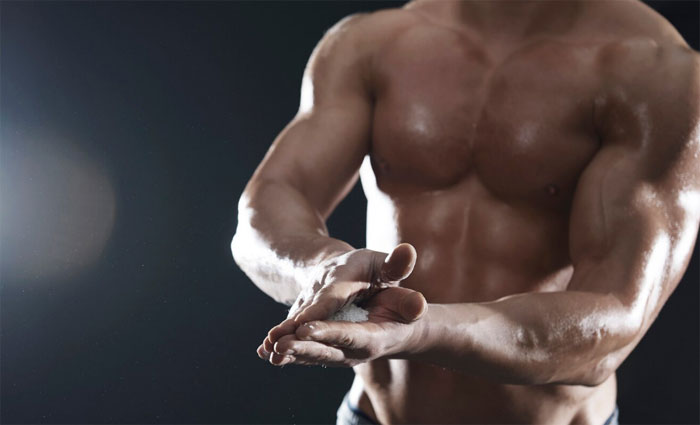
Behind every strong man is a robust hormonal foundation-here’s how it works. This hormone dictates your physical prowess, mental clarity, and even how your body stores fat. When levels drop, the effects ripple through every system.
What Is Testosterone?
Think of it as your body’s frontline commander. During puberty, it orchestrates muscle growth, deepens your voice, and fuels sexual development. In adulthood, it maintains:
- Muscle mass – Prevents frailty and keeps you battle-ready.
- Bone density – Your skeletal armor against fractures.
- Red blood cells – Oxygen carriers for endurance.
"Men produce 10 times more testosterone than women-making it the cornerstone of male vitality."
Why Testosterone Levels Decline with Age

After 30, your hormone production retreats by 1% yearly. This isn’t just about aging-thyroid issues, diabetes, or injuries can ambush your levels. Watch for these signals:
- Sleep disruptions – Your body’s midnight repair crew falters.
- Cholesterol spikes – A metabolic red alert.
- Stubborn fat – The enemy infiltrates your midsection.
Women’s hormonal landscapes differ, but for men, this decline is a call to arms. Recognize the signs early-your energy and resilience depend on it.
Key Symptoms of Low Testosterone
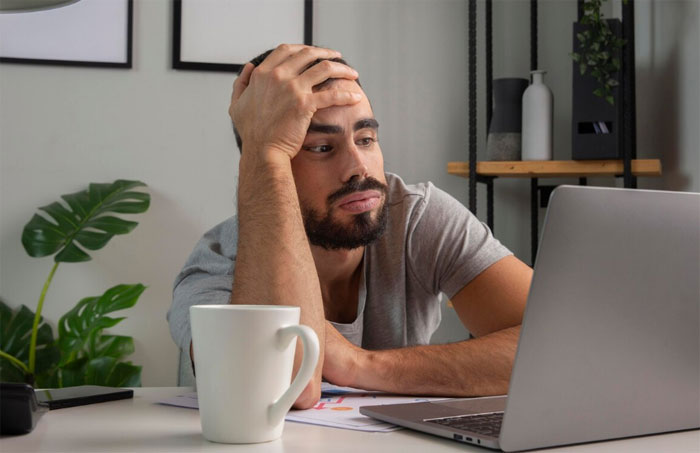
Warning signs of dropping hormone levels can sabotage your mission for peak performance. Your body deploys distress signals-physical and emotional-when testosterone retreats. Decode them early to mount a counterattack.
Physical Symptoms: The Frontline Defense
Your physique reveals the first clues. Unexpected weight gain, especially around the waist, signals hormonal territory loss. Gynecomastia (breast tenderness) and thinning body hair are further red flags.

Emotional Symptoms: The Silent Battle
Your mind fights its own war. Irritability, brain fog, and motivation loss are IEDs (Irritability, Energy Drain, Depression) threatening mental strongholds. Sleep disruptions cut supply lines to recovery.
- Depression: A fog that dulls your edge.
- Memory lapses: Intel gaps in daily ops.
- Sex drive decline: Muted desire weakens intimate missions.
"Ignoring symptoms is like leaving your flank exposed-act before the enemy advances."
How Low Testosterone Affects Mood and Emotional Health
Your emotional resilience isn’t just mental-it’s a hormonal battleground. When testosterone retreats, depression, irritability, and brain fog storm the gates. Studies show 43% of men misdiagnosed with clinical depression actually face a hormone deficiency.
The Hormone-Depression Connection
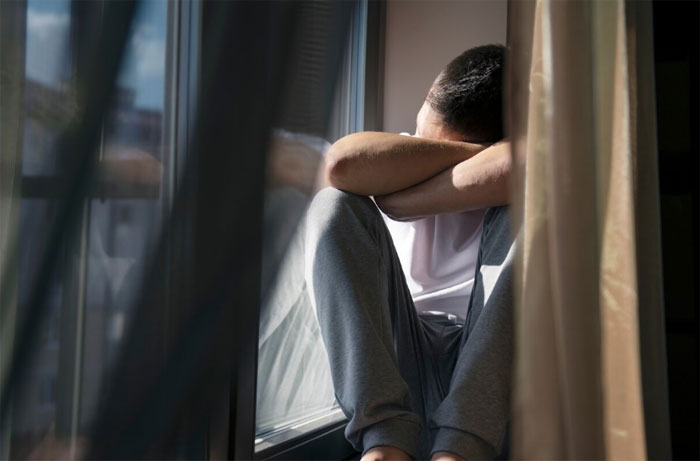
Depression isn’t just psychological warfare. Low testosterone cripples serotonin production-your brain’s morale booster. Symptoms like fatigue, social withdrawal, and lost motivation mirror depression but stem from hormonal sabotage.
- Obesity: 30% of overweight men face hormone deficiencies vs. 6% at healthy weights.
- Diabetes: 1 in 4 with Type 2 diabetes experience plummeting levels.
- Blood tests: Critical recon to separate true depression from hormonal insurgency.
"Hormonal imbalances mimic depression’s playbook-testosterone levels are the missing intel."
Irritability and Anxiety: The Silent Front
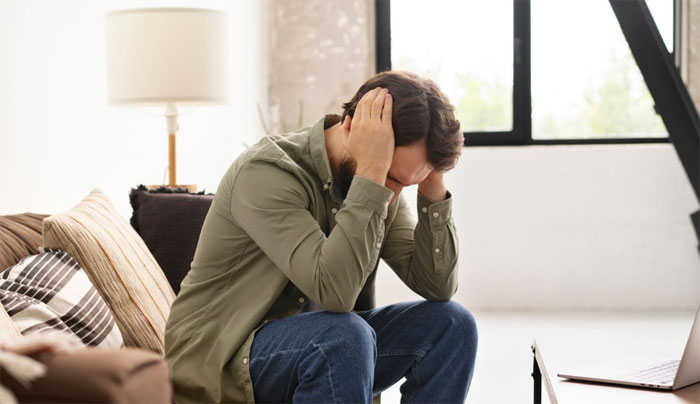
Ever snap over minor setbacks? That’s your hormone levels sounding alarms. Dropping testosterone disrupts cortisol regulation, leaving you stranded in fight-or-flight mode. Key red flags:
- Unexplained agitation-like friendly fire on your patience.
- Sleep disruptions cutting supply lines to recovery.
- Foggy focus-operational clarity compromised.
Your body’s sending distress signals. Decode them before the enemy advances.
Common Causes of Low Testosterone
Dropping testosterone levels don’t happen without a cause-know your enemy’s playbook. Whether it’s genetic sabotage or lifestyle betrayals, identifying the root cause is your first strike in reclaiming vitality.
Primary vs. Secondary Hypogonadism
Primary hypogonadism is a direct hit to your testicles-the frontline production sites. Battle scars like injuries, cancer treatments (chemotherapy survivors face 80% higher risk), or genetic conditions like Klinefelter syndrome cripple output.
Secondary hypogonadism? That’s a comms breakdown. Your gland (the pituitary) stops sending orders. Obesity, sleep apnea, or diabetes jam the signals. Result? Your hormonal troops stand down.
Lifestyle and Medical Factors
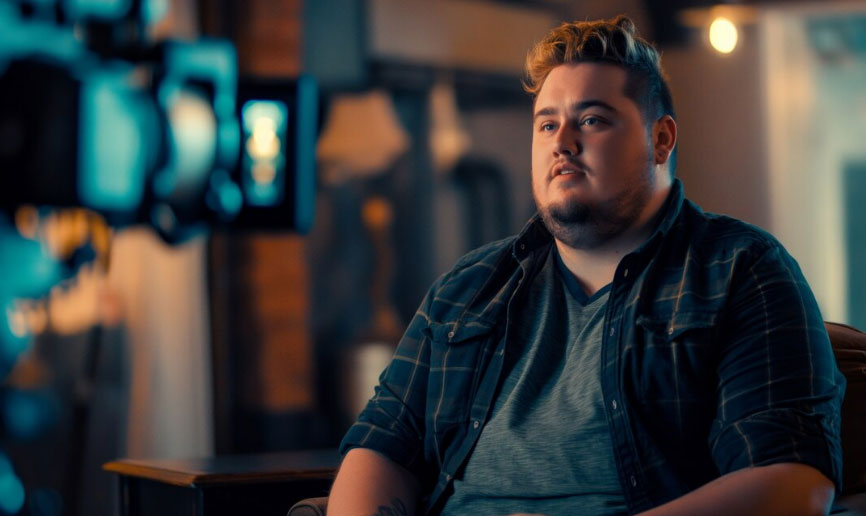
Your daily ops might be undermining morale. Watch for these stealth attacks:
- Pharmaceutical double-agents: Opioids and prostate meds sabotage testosterone supply lines.
- Obesity’s infiltration: Fat cells convert hormones into estrogen-a silent coup.
- Sleep sabotage: Poor rest disrupts your body’s nightly repair missions.
"Hormonal decline is never a solo mission-lifestyle and genetics are often co-conspirators."
Arm yourself with intel. Whether it’s a genetic weak spot or self-inflicted wounds, pinpointing the cause turns the tide in your favor.
Diagnosing Low Testosterone
Suspect a hormonal imbalance? Your blood holds the intel. Accurate diagnosis is your first strike against fatigue, weight gain, and emotional turbulence. Deploy medical recon to map your levels and reclaim control.
When to See a Doctor

Don’t wait for full retreat. If three symptoms-like exhaustion, irritability, or muscle loss-persist for 72+ hours, mobilize. Diabetes, obesity, or age over 45 escalate urgency. Your health ops demand proactive intel.
Blood Tests and Normal Ranges
Two morning tests confirm the drop. Hormone levels peak at dawn-capture them in their stronghold. For men over 65, 350 ng/dL is the security threshold.
- Total + Free Testosterone: Measures active and bound hormone troops.
- SHBG/LH Analysis: Exposes hidden hormonal sabotage.
- False Alarms: Temporary dips? Repeat recon to avoid missteps.
"Bloodwork is your battlefield map-read it right, and victory follows."
Effective Treatments for Low Testosterone
Your mission to reclaim vitality starts with strategic countermeasures against hormonal decline. Whether through medical treatment or lifestyle changes, restoring balance is a tactical operation with proven success rates.
Testosterone Replacement Therapy (TRT)
TRT is your frontline defense. These medical reinforcements come in multiple deployment styles:
- Injections: Fast-acting strikes administered weekly/biweekly.
- Gels/Patches: Steady-state hormone delivery for sustained operations.
- Pellets: Surgical implants providing 3-6 month supply lines.
ED medications like Viagra® address sex drive symptoms but don’t boost production-TRT tackles the root cause.
Lifestyle Changes to Boost Testosterone
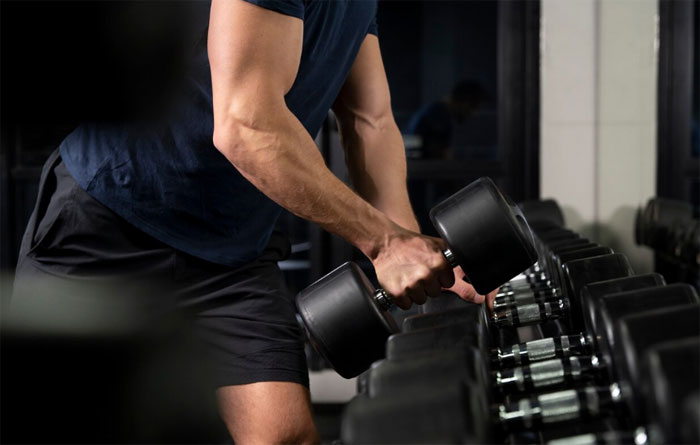
Your daily habits are force multipliers. A 5% weight reduction can increase levels by 15%. Key maneuvers:
- Sleep hygiene: 7+ hours nightly optimizes natural hormone surges.
- Nutrient resupply: Zinc and vitamin D deficiencies sabotage your body’s hormone factories.
- Strength training: Lifting preserves muscle mass and triggers testosterone release.
"TRT combined with lifestyle upgrades is a pincer movement against hormonal decline-attack from both fronts."
Conclusion
Victory over hormonal imbalance starts with decisive action-don’t retreat. Your health ops demand vigilance. Act fast-early bloodwork prevents full-system collapse.
30% of troops carrying extra weight need hormonal reinforcements. Stand your ground. 85% report mission-ready energy with proper treatment like TRT.
Annual recon keeps defenses at DEFCON 1. Watch for symptoms like fatigue or fading drive. These red flags signal your strength is under siege.
Deploy now-schedule your health briefing. Your muscle, mind, and resilience depend on it.
FAQ
How does low testosterone affect mood?
When levels drop, you may feel irritable, anxious, or even depressed. The hormone plays a key role in emotional balance, so a decline can disrupt mental resilience.
What are the physical signs of low testosterone?
You might notice reduced muscle mass, weight gain, fatigue, or a lower sex drive. These changes signal it’s time to check your levels.
Can lifestyle changes improve testosterone naturally?
Yes! Strength training, quality sleep, and a nutrient-rich diet help optimize production. Cutting stress and alcohol also supports healthy hormone function.
When should I see a doctor about low testosterone?
If symptoms like fatigue, mood swings, or muscle loss persist, get tested. Blood work confirms whether your levels fall below the healthy range.
What’s the difference between primary and secondary hypogonadism?
Primary means your testes aren’t producing enough hormone. Secondary indicates issues with the pituitary gland or hypothalamus disrupting signals.
Is testosterone replacement therapy (TRT) safe?
Under medical supervision, TRT can be effective. However, it’s not for everyone-discuss risks like prostate concerns with your doctor first.





